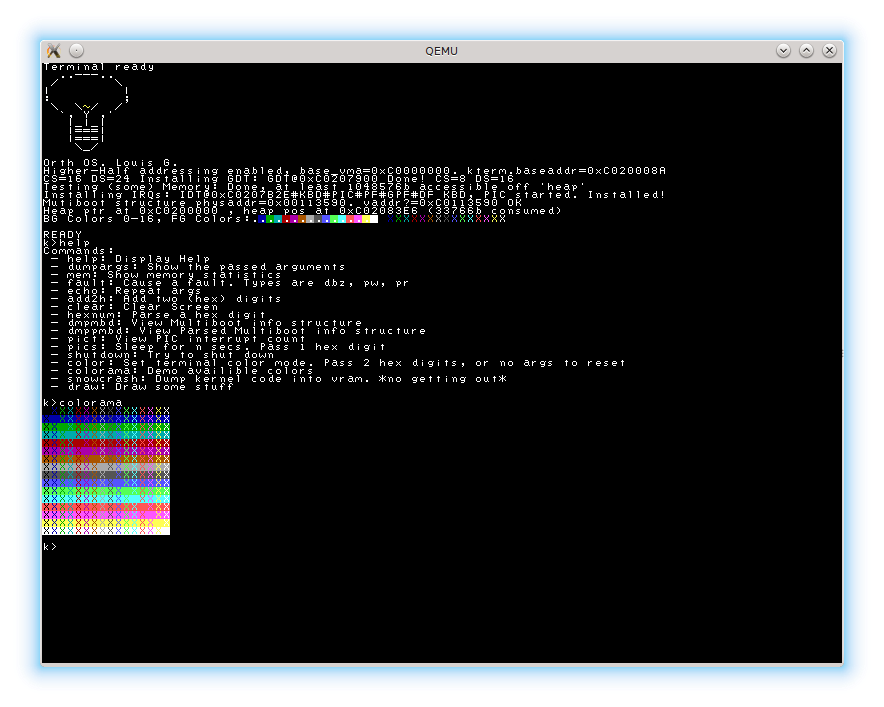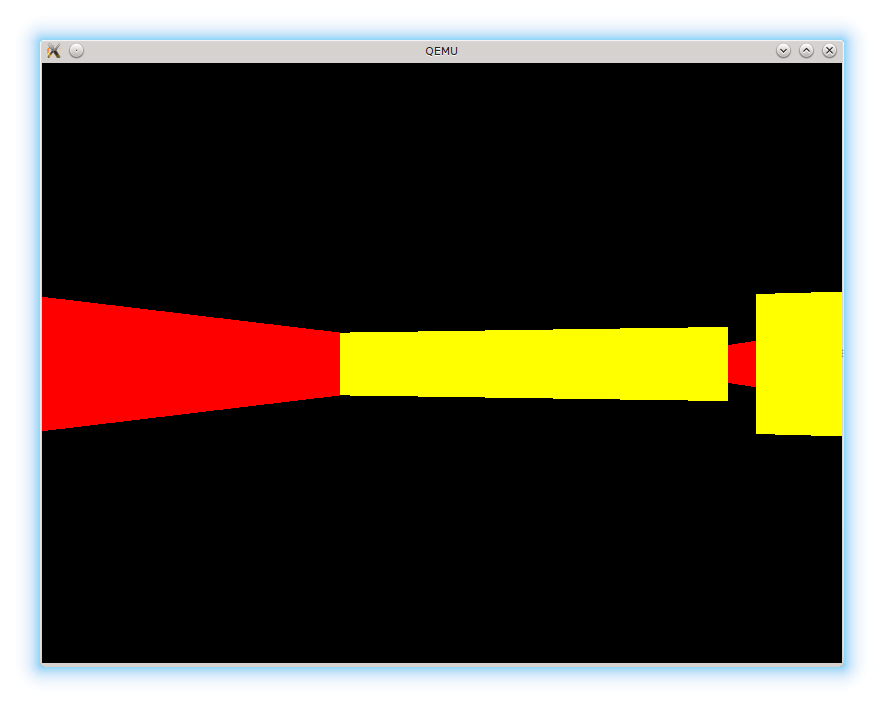Unfortunatley, I haven't had time to do a lot of work on Orth recently. As a result, it has fallen into a state of disrepair where SHOC won't build under modern versions of LLVM and/or GCC (also, it's borked half-way through my work to add generics last time I was looking at it.) I may return to it at some point, but more likley is starting over and building another language, since my further learning in the languages realm has exposed some fundamental structural flaws in orth (only one pointer type...)
Nonetheless it's still cool imho, and the OS still builds which is a fun demo!
Orth is a looosley statically typed, Object Oriented, C and Python inspired systems programming language. It allows much of the same functionality as C, with a focus on elegance and cleanliness of syntax. It's easy to learn, if you know C you know the fundamentals of orth:
import std
function() main -> int does
printf("Hello, world!\n")
return 0
And if you know C and Python you'll understand the OOP scheme:
import std
type Person is
cstr first_name
cstr last_name
int age
function(cstr first, cstr last, int age) Person::new -> Person does
Person new = malloc(@sizeof(Person)@)|Person
new.first_name=first
new.last_name=last
new.age=age
return new
function(Person self, int year) Person:get_age -> int does
return year - self.age
endtype
function() main -> int does
Person bob = Person::new("Bob", "Spuser", 1942)
printf("%s %s is %i years old\n", bob.first_name, bob.last_name, bob:get_age(2016))
return 0
Check out some larger, low-level usage examples from the kernel in this repo (with syntax highlighting!) here (import statements are links)
Orth is still a low-level language, meaning you still need to watch your memory managment and whatnot, but abstractions provided with the OOP ideas work with that simplicity, not against it.
- Write a program, feel free to crib the hello world example
- Install python 3 if not already done (should provide a
/usr/bin/python3) - Install LLVM 3.5 (should provide a
llc-3.5) - Install GCC (basically any modern version, should provide a
gcc) - Run
orthc <your_file_name> - Observe and run your new ELF executable with
./out
- Install LLVM 5.0 (as to provide a
llc-5.0) - Install some version of clang (as to provide a
clang) - Once you have orthc up and running, head into the shoc directory and run
./py_build --no-unwindThis will probably take ~30 seconds - This should produce a
shocexecutable with a similar-but-not-the-same command line interface (flags - documented inargs.txt- are different) - Run
./experimental_build.sh --no-unwindand shoc will rebuild itself - If this worked, copy
shoctoshoc_goodto use./build_self.sh --no-unwindfor further development without breaking the working compiler - Now you got a bona-fide orth-in-orth compiler in shoc. Should be compatible with samples stuff - e.g.
./shoc ../samples/http.ort && ./out 5001to serve a demo web server on localhost:5001 - Bonus step: install libunwind (
libunwind-devon debian,) buildunwind_shim.oin thelib/unwindfolder and build without the--no-unwindflag
- If you want to run the OS, you'll need a i386 cross-compiler GCC toolchain (gcc/as/ld,) and my build scripts will probably need some PATH tweaking, but with that set up in the path you should be able to run the
build.shscript in the os folder
The OS should run on QEMU/VirtualBox/etc and on REAL x86 HARDWARE! Should run just fine on modern computers too. If you wanna play around with it, snake and rc are cool toys on the kernel shell.
Some cool screenshots of the OS in action:

